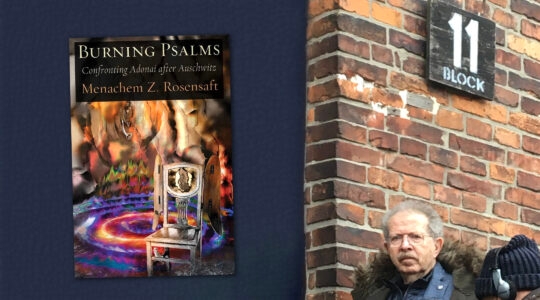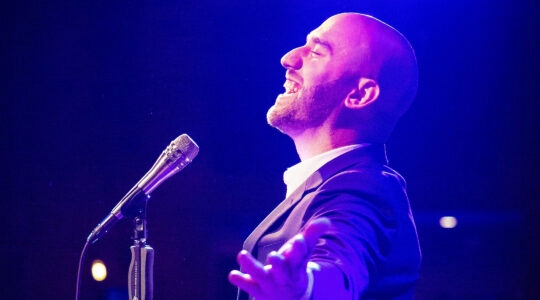JERUSALEM – Yossi Mizrachi, a Jerusalem greengrocer with a clientele that ranges from secular to Orthodox, has long considered Israel’s kashrut certification a necessary evil.
“It’s tough, but it’s something you need if you want to retain clients,” said Mizrachi while serving customers behind the counter of his store, where a framed kashrut certificate from the famously strict Jerusalem branch of the Chief Rabbinate hung on the wall behind him.
But soon there will be a new (and cheaper) kosher certifier in town; it will be run by the religious Zionist rabbis of Tzohar, a group best known for offering Israeli couples an Orthodox way to get married in Israel without the direct intervention of the Rabbinate.
“It’s an interesting idea,” Mizrachi told The Jewish Week. “I pay more than NIS 1,000 [nearly $300] a month to the Rabbinate’s inspector, and since I pay him directly there could be an incentive for him to find things wrong with my produce. [But] unless Tzohar’s certification becomes widely accepted, many of my customers could say, ‘This new certification isn’t good enough’ and take their business elsewhere.”
Tzohar will soon offer its own certification services because Hashgacha Pratit, a pioneering alternative kashrut certification program, petitioned the High Court to break the Rabbinate’s kashrut monopoly.
Last September the court ruled that although the Rabbinate is the only body empowered to certify that a restaurant or establishment is kosher, businesses have the right to inform diners of their kashrut standards. If a restaurant serves kosher food but is open on Shabbat, for example, customers can then make an informed decision on whether or not to eat there.
That ruling led the way for Hashgacha Pratit and potentially others to issue certification, as long as they don’t use the word “kosher.”
Tzohar, which is not only hoping to serve Hashgacha Pratit’s 40 clients but many others in the future, just completed its first training course for female kashrut inspectors in cooperation with the Emunah organization. All of the Chief Rabbinate’s inspectors are male.
Rabbi Rafi Feuerstein, Tzohar’s founder, said that within 48 hours of announcing its new program late last month his organization received requests from more than 50 restaurants.
“Interest has been strong,” he said. Tzohar will pay its inspectors directly, and offer its services at a lower cost than the Rabbinate.
“Our goal, Rabbi Feuerstein said, “isn’t to steal businesses already served by the Rabbinate. [It’s] to offer supervision to the many places that lack supervision because they don’t want to deal with the Rabbinate.”
Not surprisingly, the Chief Rabbinate isn’t happy with the new Tzohar initiative.
“The Tzohar Rabbinical organization is fast becoming like the Conservative movement, and it would be good for the public to understand that the struggle for the kashrut system is not between the Rabbinate and Tzohar, but between the Rabbinate and the Conservative movement, which has taken over Tzohar,” unidentified Rabbinate officials said, according to Ynet News.
“Questioning Tzohar’s Orthodox credentials is the ultimate insult,” Uri Regev, CEO of Hiddush: Freedom of Religion for Israel, told The Jewish Week.
While the Rabbinate’s wrath was expected, criticism from several rabbis that participate in Tzohar’s marriage services wasn’t.
Last week, a number of Tzohar-affiliated rabbis signed a petition asking the group to stop its kashrut initiative on the grounds that — unlike its marriage services — kosher certification is not under the Rabbinate’s authority, and therefore goes against Tzohar’s mission.
Given the pressure that Tzohar is facing, Regev questioned whether it can achieve a significant foothold.
Uri Ohayon, the owner of Beit Lechem, a fashionable Zabar’s-type shop in south Jerusalem, agrees.
“Having the Rabbinate’s certification gives me peace of mind because it’s what my clients are used to. The inspector comes and does his job. It helps me sleep at night.”
Itzik Yaacov, the owner of the nearby Yithak’s café, was among the first to be certified by Hashgacha Pratit, “and we will continue to work with its supervisors under Tzohar,” he said.
“Their inspectors are very professional and pleasant to work with,” Yaacov said, “and we really don’t want to work with the Rabbinate. They claim to believe in God but in reality they do what is best for them.”
The New York Jewish Week brings you the stories behind the headlines, keeping you connected to Jewish life in New York. Help sustain the reporting you trust by donating today.




